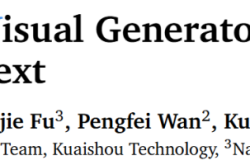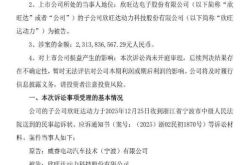What is the game between WeChat and Apple? - My opinion
![]() 09/09 2024
09/09 2024
![]() 470
470
In the past month, rumors have been circulating in the market that "Tencent and Apple are engaged in a game over the revenue sharing issue of in-app purchases in WeChat", and that "if no consensus is reached, WeChat may not be able to log in to the next generation of Apple phones". This claim is obviously exaggerated, but the game is clearly present, as the iOS version of WeChat has indeed not been updated for some time, and Tencent has engaged in a game with Apple over the issue of "whether WeChat official account tipping requires iOS revenue sharing" years ago - a game that ended with Apple's concession.
Outside speculation is that the focus of this game between Apple and Tencent is the issue of "in-app purchases in WeChat mini-games": if in-app purchases in mini-games can be made through third-party links for payment, the "Apple tax" can be avoided, which is difficult for Apple to accept. It is said that Apple is also engaged in a similar game with Douyin, as Douyin's mini-game ecosystem is also well-developed. In my opinion, mini-games are certainly an important issue, but by no means the whole picture. What Tencent values most should be the overall content payment prospect of the WeChat ecosystem, of which mini-games are just a part.
In December 2020, WeChat launched "WeChat Beans", a medium for in-app purchases and top-ups, allowing users to purchase WeChat Beans through the WeChat wallet at any time and then use them to purchase virtual gifts or pay for content. After more than three years of development, WeChat Beans have developed the following rich uses:
Live streaming tipping on video accounts; joining fan clubs of video account anchors; subscribing to paid columns on video accounts; purchasing or subscribing to paid articles on official accounts; and promoting video account content (advertising).
In fact, the history of the expansion of WeChat Beans' functions is a history of the continuous expansion of the content payment ecosystem on WeChat. Before 2021, WeChat's commercialization relied almost entirely on game traffic and advertising, but with the rise of video accounts and the continued strength of mini-games, users' content payment behavior within WeChat has become increasingly active. According to Apple's consistent policy, any content payment behavior within the iOS ecosystem is subject to the Apple tax, which means that the overall burden of the Apple tax on WeChat is becoming heavier and heavier.
It is worth mentioning that WeChat Beans can be used not only to purchase content or tipping, but also to promote one's own content. This contrasts sharply with Douyin: on Douyin, the "diamonds" used for tipping and the "DOU+" accounts used for content promotion are separate, with different recharge entry points and cannot be converted to each other. I believe this reflects WeChat's ambition for a "unified in-app purchase system" - using WeChat Beans as a hub and making them the "general equivalent" for all paid functions within WeChat, which not only makes management easier but also facilitates user adoption.
However, WeChat Beans are not equivalent for Apple and Android users: the former can only purchase 7 WeChat Beans for 1 yuan, while the latter can purchase 10 for 1 yuan, with the difference being the "Apple tax". Apple users can, of course, "avoid taxes" through third-party links, but due to the cumbersome process, most ordinary users will not do so. With WeChat's content payment ecosystem not yet fully developed, Tencent must address this issue as soon as possible; otherwise, as related revenues grow, it will only become more difficult to obtain concessions from Apple.
I believe that in the process of the game between Tencent and Apple, a question is likely to be raised: "Why was the Apple tax not imposed on public account tipping initially, but now it is imposed on live streaming tipping on video accounts?" The real answer to this question is that the market size of public account tipping is too small, while the market size of live streaming on video accounts is very large. Apple can afford to give up a small piece of the pie, but never a large one!
Currently, WeChat Beans cannot be used for in-app purchases within mini-programs (whether games or non-game mini-programs), so WeChat's content payment system remains fragmented and has not yet achieved final unity. My personal guess is that WeChat officials surely hope to make WeChat Beans serve the function of in-app purchases within mini-programs, especially mini-games, but as long as the revenue sharing issue with Apple has not been resolved, this step will be difficult to take. The recent concentrated rumors of the game between the two sides likely reflect both parties' desire to find a phased solution to the above issues before the official launch of the iPhone 16.

For gaming apps, Apple is an "absolutely high-quality" channel compared to domestic Android, as it only charges a 30% revenue share, while domestic Android charges 50%. However, for non-gaming apps, domestic Android generally does not charge for in-app purchases (and cannot even if it wanted to), making Apple an unsatisfactory channel for content platforms. Therefore, Tencent and Apple have a relatively harmonious relationship on gaming-related issues, with Tencent's main conflict being with domestic Android channels represented by the Hardcore Alliance. However, on non-gaming issues related to WeChat content payment (note: mini-games also fall under "non-gaming issues," determined by the channel revenue sharing model), the conflict between Tencent and Apple is more acute.
So, who will make the first concession? I think even if Apple is willing to make a concession, it will be very small, such as reducing the revenue sharing ratio for in-app purchases within mini-programs by a few percentage points, or tacitly allowing some third-party recharge links within WeChat. Just like the public account tipping issue years ago, such a concession has some value without destroying Apple's in-app purchase revenue sharing system. A similar game may occur again around the time of the next iPhone release next year, but it will not result in a more intense outcome.
Neither WeChat nor Douyin will take any risk of "abandoning Apple phone users." The average income and spending power of Apple phone users are too high. In the gaming industry, for example, iOS devices contribute 40-50% of revenue with only about 15% market share of users; among the so-called big spenders, the proportion of Apple users is particularly high. Abandoning iOS users is not feasible, even if the product quality provided on the iOS side is slightly inferior, and even thinking about it is dangerous. Therefore, such a game will last at most one or two months, as not updating the iOS version for about two months is already the maximum risk that any top app can take.
If Apple continues to refuse to make substantive concessions, will WeChat still allow "WeChat Beans" to serve as the hub for all content payment? Based on the consistent style of the WeChat team, I think it is possible. As long as other business groups and subsidiaries under Tencent agree, WeChat Beans can even take on the mission of purchasing all Tencent's paid content in the future, such as QQ Music, Tencent Video, and even games. This will be a long process involving far more internal corporate games than external ones, but the direction will not change.
Of course, the ultimate fate of WeChat Beans depends more on the commercialization trend of video accounts than on Apple's attitude - the better the live streaming and paid column functions of video accounts are developed, the faster users will develop the habit of purchasing WeChat Beans, laying the foundation for the expansion of WeChat Beans' functions. Ultimately, the success or failure of the entire Tencent ecosystem lies in video accounts, especially their live streaming functions.








